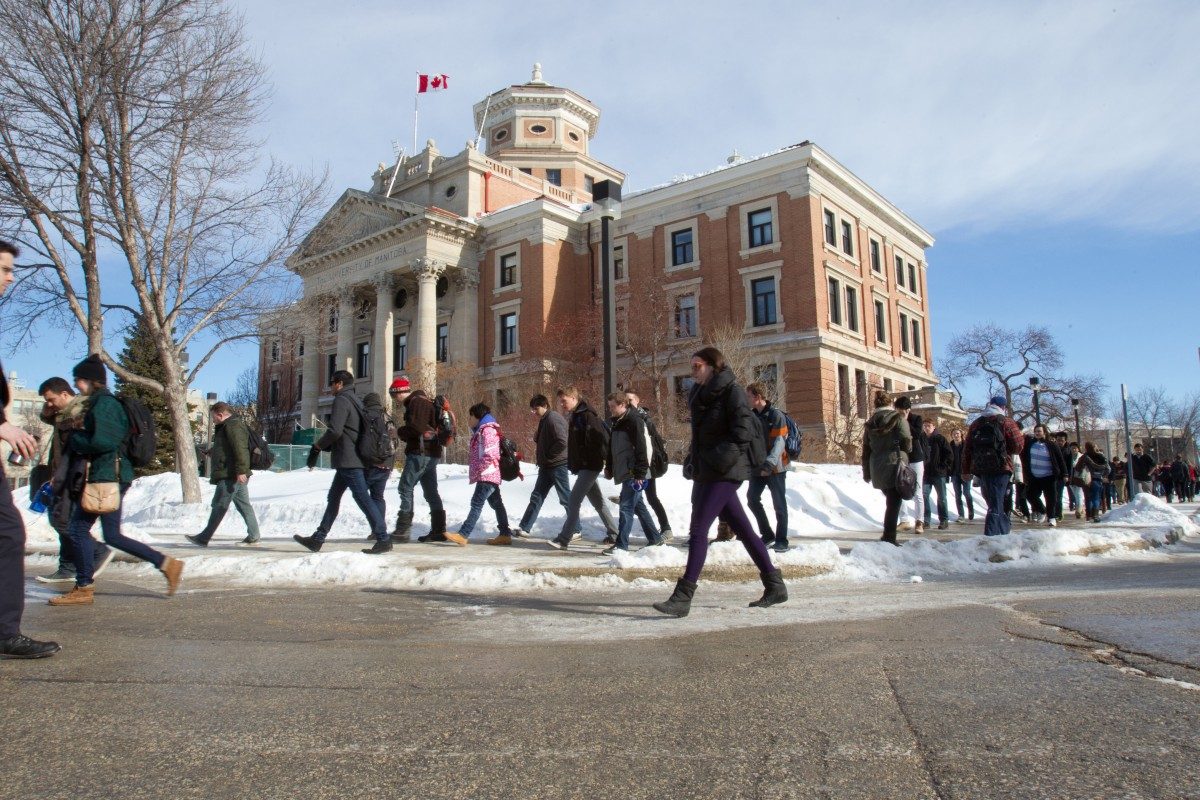
University to raise tuition for 2018-19
Provost and Vice-President (Academic) Janice Ristock explains proposed new rates
The University plans to recommend to its Board of Governors an increase in tuition in accordance with new government legislation.
Pending necessary approvals, the new tuition fees would come into effect in September, 2018 and apply to all faculties, affecting domestic and international students enrolled in undergraduate and graduate programs. (Read an FAQ.)
The provincial government introduced the new legislation earlier this year as part of the Advanced Education Administration Act (the Act). The Act enables Manitoba’s post- secondary institutions to increase tuition by 5 per cent plus the current Consumer Price Index (CPI), which is similar to the inflation rate. CPI is currently calculated as 1.6 per cent.
As a result, tuition for 2018-19 will be increased by 6.6 per cent.
Average University tuition for Manitoba (as a province) will remain the lowest of western Canadian provinces and amongst the lowest in Canada.
“I think it’s really important that we understand that many students face challenges in paying for their education, so any kind of increase can be difficult,” said Dr. Janice Ristock, Provost and Vice-President (Academic).
There are many supports already in place to help ensure that the University of Manitoba remains affordable and accessible for all students. Annually, more than $16 million dollars in scholarships and bursaries is disbursed among University of Manitoba students. There are also numerous other programs in place to financially assist students, such as emergency loans and an on-campus work-study program.
Additionally, the University of Manitoba’s Front and Centre campaign continues to raise millions of dollars for financial assistance to support undergraduate and graduate students.
“The University of Manitoba remains committed to ensuring studying here remains affordable and fulfilling,” said Dr. Ristock. “We will continue to focus on offering the highest quality programs possible, even in these times of financial constraint.”
In its 2018/19 budget, the provincial government reduced operating grants to the University of Manitoba and other post-secondary institutions by 0.9 per cent.
“Even with the increase in tuition, budgets in the post-secondary education sector are severely constrained,” added Dr. Ristock. “The reduction in operating grants presents serious challenges. At the same time, the University of Manitoba will continue to strive to provide the best possible programs and services for students.”
Recent examples of improving the student experience include increased scholarship funding for graduate students, increased scholarship funding for Indigenous students, increased funding for undergraduate research awards, and increases in experiential learning opportunities.
As an example of the impact of the new rates, an average domestic Faculty of Science undergraduate student taking a full course load (30 credit hours) will see tuition increase by $257 per year, from $3,897 to $4,154. That works out to approximately $26 more per 3-credit-hour course. The projected increase in tuition for an international student in the Faculty of Science is approximately $992 per year, an increase from $15,036 to $16,028.
The new tuition rates ensure that studying in their home province is still the most affordable option for Manitoba students, and that the University of Manitoba remains competitive with other Canadian universities in attracting other Canadian students and international students.
“The University continues to maintain that the long-term sustainability of Manitoba’s post-secondary sector requires increased funding from government as well as tuition rates that are more aligned with the rest of Canada,” explained Dr. Ristock. “Manitoba university students deserve the best possible instruction, facilities and experience. To achieve that high level for students, we believe we need a combination of increased government funding and tuition, within a framework that keeps tuition competitive. University leaders will continue to work with student leaders and others to advocate for increased levels of government funding.”






